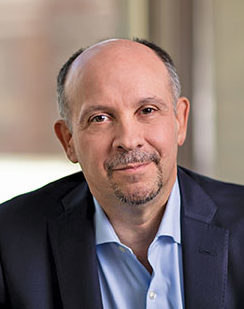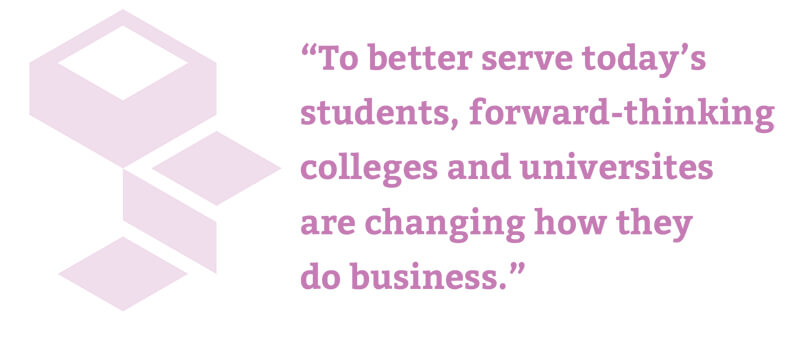Four-year colleges are taking a lot of flak these days. In poll after poll, Americans are questioning the value of the bachelor’s degree, with growing numbers saying the credential fails to provide sufficient return on investment. The findings come as tuition and student debt continue to climb, and as certificate programs and other alternatives emerge as gateways to well-paying jobs. With public confidence in college eroding, it’s understandable that more students choose these alternative paths.
These developments add to the demographic trends that have steadily shrunk the pool of college-age individuals. With enrollment down and tuition revenue declining, many colleges and universities have been forced to cut programs, eliminate majors, and lay off staff. Fourteen nonprofit colleges shut their doors in 2023, and many others are fighting for survival.
Yet the data continue to point overwhelmingly in favor of the bachelor’s degree. College graduates can expect to earn substantially more income than those who lack a degree—65 percent more, on average, over a lifetime, economists say. And most importantly, the vast majority of jobs in coming years will require a credential beyond the high school diploma. By 2031, according to Georgetown University’s Center on Education and the Workforce, 42 percent of jobs will require at least a bachelor’s degree.
To meet those workforce demands in ways that better serve today’s students, forward-thinking colleges and universities are changing how they do business. These schools recognize that the status quo is not enough; they need to change what they do to meet the demands of today’s students. They’re not abandoning their commitment to liberal education; they are adding a commitment to give that education practical purpose. These committed colleges are offering students better advising, clearer pathways, lower costs, flexible delivery systems, and tighter connections between classroom and careers. And they are doing all of this in ways that boost success among populations of students who have been poorly served by bachelor’s-granting institutions.
These innovative institutions have an important story to tell, a story of transformation driven by one overarching goal: student success. This issue of Focus magazine aims to tell that story—or more accurately, three specific versions of it.
In this Focus, you’ll visit three very different colleges that have been in the vanguard of the effort to transform the four-year experience to benefit today’s students.
- In Decatur, Georgia, you’ll meet Dax Vandevoorde, 21, a self-described “math nerd” who sought a college where she could thrive in STEM courses while getting a solid grounding in the liberal arts. She found such a place in tiny Agnes Scott College, a private all-women’s institution that blends traditional academics with hands-on learning, career preparation, and leadership development. The college’s innovative global curriculum and expansive undergraduate research opportunities have been an inspiration for students like Faith Lockhart, 23, who is on her way to a master’s program in neuroscience, and for Madison Jennings, 22, a political science and religion major who has been named a 2024 Rhodes Scholar.
- In North Carolina, you’ll visit Fayetteville State University, an HBCU near Fort Liberty, the nation’s largest Army base. Fayetteville State goes the extra mile to attract and retain military veterans and their families, who represent 30 percent of the student body. One such student is Jeremy Ricketts, a 45-year-old Army veteran who served multiple tours of combat duty, including deployments in Kosovo, Iraq, and Kuwait. Ricketts felt out of place as an older student at a previous college, but he’s found genuine community and tailored supports at Fayetteville State. The university’s robust online offerings also make college possible for students such as Veronica Chance, 46, who is juggling her studies with a full-time job and caring for a special-needs son. And its exceptionally low tuition is a dealmaker for many students, including Casey Gregg, 39, who is getting a fresh start at Fayetteville State after 20 years of incarceration.
- Finally, you’ll hear from students at Northern Arizona University, a large public institution in Flagstaff. NAU is attracting record enrollments with new policies that improve access and affordability—including strong partnerships with community colleges and free tuition for Native Americans. The university’s Jacks on Track program breaks down the barriers to re-enrollment for students like Cassandra Brown, 33, who stopped out years ago to raise a family, and Jason Watchman, 39, a biology major and member of the Navajo Tribe whose earlier studies were interrupted by an Army stint, the birth of a son, and COVID-19.
All of the students featured—and thousands of others at forward-looking colleges and universities across the country—are benefiting from higher education’s new commitment to enhance the four-year experience. Administrators and faculty are employing strategies proven to boost student success: designing well-defined pathways to quality degrees; helping students find—and stay on—the paths best suited to their needs; and ensuring high-quality teaching and learning.
They do all of this to ensure that their students—whatever their backgrounds, whatever their ages—complete their education and launch as critical thinkers on a sure path to rewarding careers.
If that’s not a solid return on investment, I’m not sure what qualifies.

Jamie Merisotis
President and CEO, Lumina Foundation

